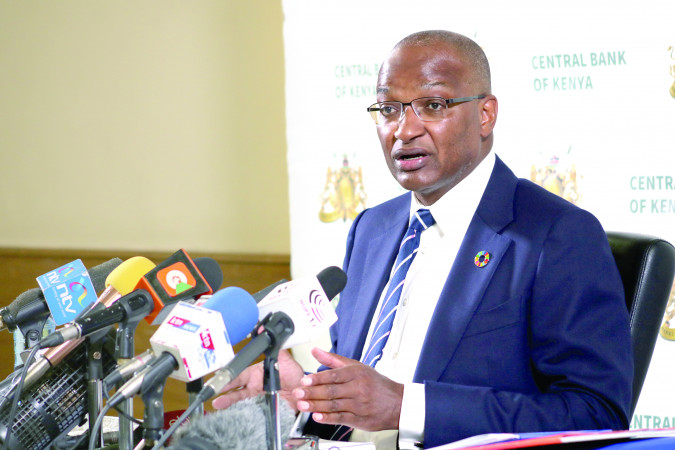Regulator warns MPs on risks of public subsidies
By Mercy.Mwai and Anthony.Mwangi, September 20, 2022Subsidies should be provided only for short-term periods as they distort the market, says Central Bank Governor Dr Patrick Njoroge.
While commenting on the just-ended fuel and electricity subsidies, Njoroge said yesterday that the subsidies had contributed to high inflation rates and public suffering due to the high taxes they attract.
While addressing lawmakers at a five-day retreat, Njoroge said that there is a need for long-term solutions to cushion Kenyans from hard economic times.
“Any subsidy is a cost that somebody needs to be taxed to cater for it. Subsidies are very good at that time but later they reflect on the inflation rate as it is likely to go up,” said Njoroge.
Temporary measures
He added: “To give subsidies, other considerations ought to be noted; and that is why it is important we have a 360 degrees discussion on this and get it right. We all know that subsidies are temporary measures which later create serious distortions in the market.”
During his inauguration speech last week, President William Ruto said his administration would do away with the subsidy programme that has kept fuel prices at manageable levels.
Ryto revealed that the subsidy had cost the government at least Sh144 billion in the last financial year and Sh60 billion in the past four months.
“If the programme continues to the end of the financial year, it will cost the taxpayer Sh280 billion, equivalent to the entire National Government’s development budget. In addition to being very costly, consumption subsidy interventions are prone to abuse, they distort markets and create uncertainty, including artificial shortages of the very products being subsidised,” Ruto said.
His sentiments immediately saw retail fuel prices in Kenya hit a new high, owing to abolishment of the fuel subsidy programme.
New prices set by the Energy and Petroleum Regulatory Authority (EPRA) stated that a litre of petrol is to retail at Sh179.30 from Sh159.12 and diesel at Sh165, from Sh140. The retail price of a litre of kerosene has hit a new high of Sh147.94.
The prices of a litre of super petrol, diesel and kerosene increased by Sh20.18 per litre, Sh25 per litre and Sh20 per litre, respectively.
Sh1 million question
At the same time, Njoroge said CBK is reviewing the requirement on banks to disclose deposits and withdrawals amounting to, or above, Sh1 million, so as to ensure that banks do not use this provision to punish customers.
He noted that there is a need for banks to know their customers to avoid subjecting them to too many requirements. “We need to understand and make this provision friendly for you. That is why we need to improve our systems so that it is not some sort of punishment,” he said.
He added: “The conversation about the Sh1 million limit is something that CBK is working on. (The limit) is being used to punish others yet it should be a straightforward matter. There is a need for sanity. Banks need to know their customers. Soon, we will address this matter.”
However, he revealed that the capping had worked as dirty money was no longer finding its way into the country. “We cannot continue doing things the old way and that is the reason we have this capping so that we can have a safe environment to do business,” he said.
He added: “There is very little dirty money in the country now and this is because of the work we have done with our banks.”
His sentiments come days after President Ruto asked CBK to relax the rules for reporting transactions beyond Sh1 million. “I have been assured by the Central Bank that work on how to ease this burden without compromising the security of the financial system, is underway.”
Raise bank limits
Retired President Uhuru Kenyatta last October issued a directive to raise the limit of suspicious cash transactions that commercial lenders are required to report under anti-money laundering laws to facilitate cash deals.
He ordered the immediate raise of the reporting limit for both deposits and withdrawals above the current Sh1 million, without saying what the new figure would be.
The law mandates financial institutions to keep records of cash transactions of more than Sh1 million and report suspicious deals.
